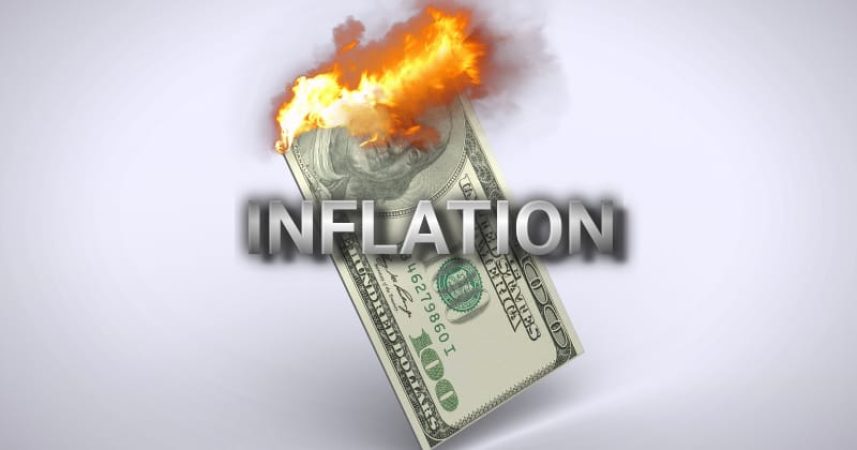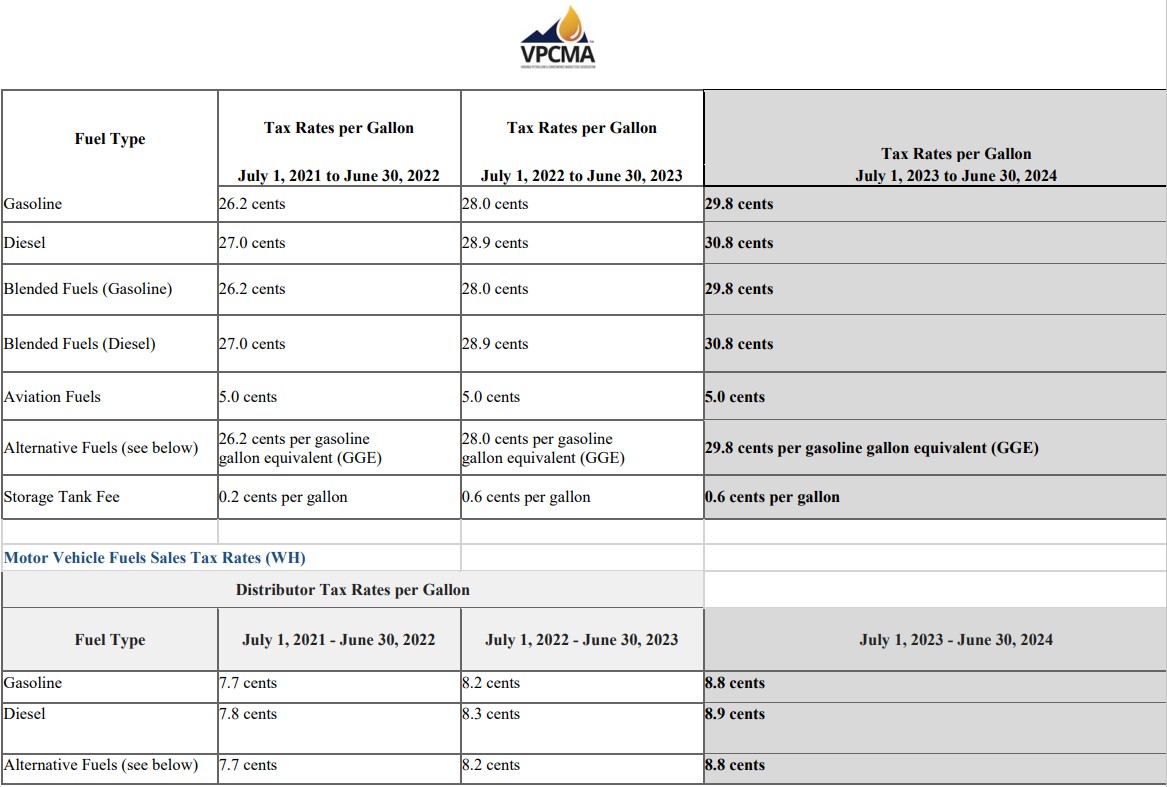
Virginia motor fuel taxes will rise again July 1, to just over 39 cents per gallon on gasoline and just over 40 cents per gallon on diesel. This will be the second automatic increase in gas taxes since the 2020 General Assembly voted to index the gas tax to inflation.

Add the retail gasoline tax and storage tank fee in the first table to the wholesale gasoline tax in the second table to get the total tax per gallon. Do the same for diesel. Source, Virginia Petroleum and Convenience Marketers Association.
This is the all-in combined tax, including the retail tax (29.8 cents as of July 1), the separate wholesale tax that is often forgotten (8.8 cents as of July 1), and a 0.6-cent per gallon tax for a fund dealing with abandoned underground tanks. The way Virginia splits up the fuels tax and tries to hide the totals has been addressed before. (Also here.) It all ends up in the pump price.
This will also increase the highway user fee (HUF), the alternative to gas taxes imposed on electric cars and hybrids in Virginia. Details on how that works are below, along with how it is cheaper than the gas tax.
The 2023 figures come from the Virginia Petroleum and Convenience Marketers Association, which shared them with its members after it received notice from the state. They put it all in one chart with the details (see above, or here). The indexing provision has added about 15% over two years, or 5.1 cents per gallon, to the state’s gasoline tax. It went to 34.1 cents per gallon on July 1, 2021, 36.8 cents per gallon July 1, 2022 and will be 39.2 cents per gallon this July.
A busy family using 1,000 gallons of fuel a year will be paying $50 more per year in tax than two years earlier. They will pay $392 in total taxes. Keep that number in mind for the discussion on HUF below.
For more than a year the painful impact of high inflation on all commodities and services has been driven home to Virginians, but it remains the most effective and sneaky way for government to pad its coffers. Sales taxes go up with prices, and property taxes go up with assessments. But until recently, Virginia’s fuel taxes were a fixed amount per gallon and inflation effectively eroded them.
So, the 2020 Virginia General Assembly added inflation indexing for fuel taxes, something it also did for the state’s minimum wage. The idea of giving taxpayers a break by indexing the income tax deductions and brackets to inflation has proven a non-starter, however. This year Democratic legislators are also balking at another increase in the standard deduction, which can be viewed as an inflation hedge.
Governor Glenn Youngkin (R) tried to persuade the 2022 General Assembly to offer a break on the fuel taxes, but Democrats voted it down. Gas tax relief was not included in his tax package for the 2023 session.
Increasing the gasoline tax also triggers an increase in the highway users fee which is assessed both on electric vehicles which use no motor fuels and on gasoline or diesel vehicles with high mileage ratings. The HUF as it is known was also established just three years ago as a mechanism to protect transportation revenues from erosion as electric, hybrid or high efficiency motor fuel engines become more popular.
The complicated HUF provision in the law is here. The HUF, paid annually when the vehicle is registered or has its registration renewed, is based only on the retail portion of the tax. The separate wholesale tax and underground tank tax are not calculated into the HUF. So, for the year beginning July 1, the HUF will be based on 29.8 cents per gallon, not the full 39.2 cents per gallon paid on motor fuels.
Actually, the HUF is only 85% of that rate, so will be about 25.3 cents per gallon. And since nobody is tracking and reporting the actual mileage of these vehicles, the tax is calculated on the average vehicle miles traveled for Virginia. For this year, that has been 11,600 miles of use. The calculation formula also includes the average miles per gallon for fueled vehicles in Virginia, 23.7 mpg.
So, an all-electric vehicle will pay about $124 of HUF for a year, in lieu of motor fuel taxes, no matter how few or many miles it drives. That will be an increase from the current $116.50.
For the “fuel efficient” gasoline, diesel or hybrid vehicles, the annual HUF will be some lower amount based on their advertised miles per gallon rating. The higher it is, the more HUF will be imposed. Again, it will tick up just a bit with the higher retail gas tax on July 1.
Of course, their owners are also still buying fuel and there is no 11,600 miles per year cap on that for them. It is that cap that really opens up the wide disparity and provides a subsidy for the EVs.
If that family mentioned above using 1,000 gallons a year has a high-mileage vehicle or two, add some HUF to that $392 in gas taxes.
If you are curious about the spread of EVs and hybrids in the overall vehicle fleet, the HUF is an excellent proxy for their growth to watch. For the current fiscal year it is projected to produce $61 million in revenue. The traditional motor fuels taxes collect closer to $1.5 billion.
If Virginia does indeed see an explosion in EV use, and the federal government is deploying every carrot and stick in its arsenal to force us to buy electric cars, then the HUF is going to have to go up. It will need to be based on the full tax paid on motor fuels. The 15% discount will have to go away and so must the cap created by assuming only 11,600 annual miles of usage.
But right now hiding the true cost of this EV conversion from consumers is the goal of our governments. The lower tax paid by EV users through HUF is just one more inducement before the bait turns into the switch.
A version of this commentary originally appeared April 26 in the online Bacon’s Rebellion.
